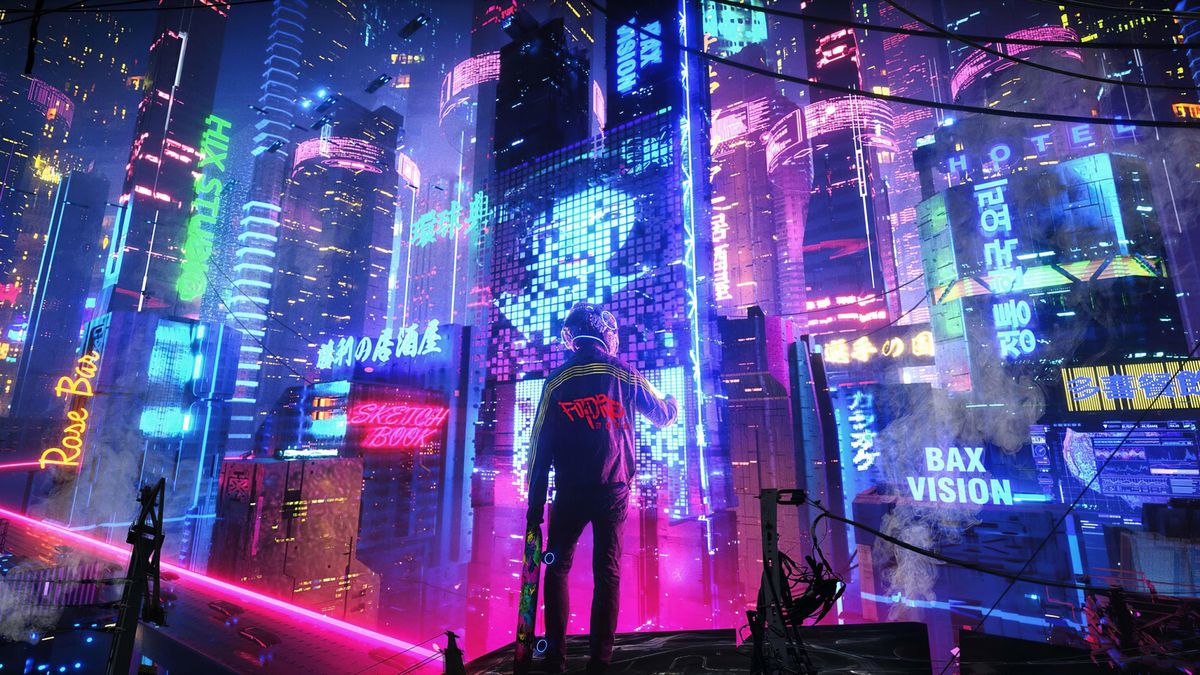They say cyberpunk is dead but we're living in it
Cyberpunk can't be dead when it's right outside

Talking about genres and such, I'm not one of those dorks that likes to split the hairs too fine.
That's a line that's hard to draw in firm granite. It's like the speed on an open road. Five faster than I want and you're a reckless idiot, five slower and you're an incompetent jerkass.
My view is simple. Nerding out about sci-fi action stories is meant to be fun.
Like many well-intended enterprise, the original motive turns sinister once the bean counters get involved.
That fact alone makes a powerful case for the walled-garden approach to curation in any community. If you don't guard the walls, you'll get infiltrators with their own ideas about how things ought to be run around here.
Bean-counting isn't fun. Doesn't matter if the beans are character stats or diversity quotas.
How fine do we split the hairs? Fine enough to be useful, not so fine that we have to wade through 100 page manifestos.
That's an enormous grey area... as it should be.
So...
What is cyberpunk?
Without even attempting to look up a definition, I'll say it's this:
Take Ridley Scott's Blade Runner, throw in Bill Gibson's Neuromancer, add a helping of Bruce Sterling's short stories, Stephenson's Snow Crash and The Diamond Age, season with a liberal dose of 80s and 90s anime including Ghost in the Shell, and whip to a fine consistency.
Distilled from this mess, you're left with a few common themes:
- Behemoth mega-corporations driven to wild and highly unethical behaviors by the profit motive
- Fusion of man and machine
- Sophisticated artificial intelligence which is at once "human like" and nothing at all like humans
- A dramatic exploration of the effects of these technologies, centering on the alienation of man from himself, from others, and from Nature
- An aesthetic which blends sophisticated high-tech neon marvels with gritty underworld hard-living neo-noir – Gibson called this "high tech, low life"
That's not cyberpunk, that's just sci-fi
A lot of those themes crystallized in the 80s and early 90s techno-aesthetic.
From there, they lost their underground "punk" cred as the mainstream digested the central ideas and artistic styles.
It's hard to call yourself an avant-garde underground movement when your mojo turns up in multi-million dollar Hollywood blockbusters.
It would be hard to tell a sci-fi story today without the influence of at least some of these themes. It can be done, but it has to be done as a historical set-piece, or outright fantasy with ray-guns.
Today, if you aren't talking about AI, bio-tech, cyborgs, and nano-whatevers, you may as well be writing high/low/epic/urban fantasy anyway.
If you get down to it, the main point is the kind of story you can tell.
The best 'cyberpunk' is really a thriller story with chrome and neon
Does that sound too banal to be true?
Good.
Don't start in with the differences between "thriller", "mystery", and "action/adventure" either.
Don't care. Not going to hear it.
Point is, somebody gets into trouble and has to race against a ticking clock to prevent bad juju from going down.
The stakes are usually personal... to a seedy low-life sort of hero... dramatized with cool robots and malicious corporate execs in an urban hell-hole.
Maybe that's not all. Bruce Sterling's cyberpunk stories might seem to barely qualify, if you don't mind stretching the concepts a little bit.
That's okay. Stretching is good for a body and even better for a concept. Borderline cases are normal when you've got few genuine logical limits.
Nerds hate this but who cares what nerds hate?
Not me, that's for sure.
Like this article? – You'll get to read all the member-only posts if you join us.
Want to leave a comment? You'll need to join us inside the the private rogue planet community.
Members can discuss this article over at the rogue planet zone on SocialLair.

